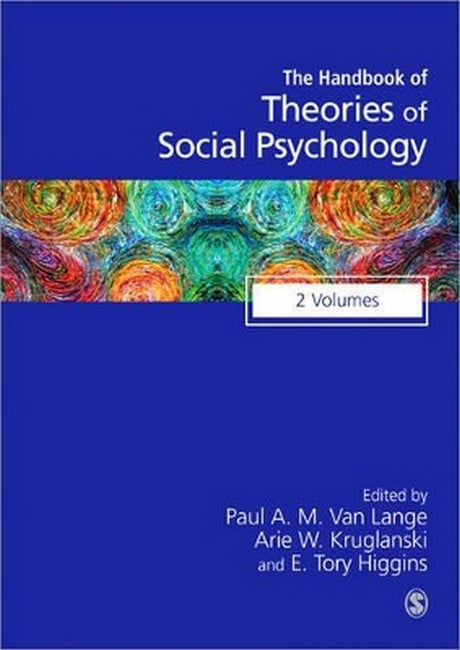Paul van Lange (1961) has been a Professor of Social Psychology at the VU since 2000 (and Special Professor at Leiden University from 1999-2008). He has published well over 100 articles on topics closely linked to trust and human cooperation in journals such as Annual Review of Psychology, Journal of Personality and Social Psychology, and Psychological Bulletin, and currently conducts research on topics such as (a) helping and altruism, (b) rewards and punishments, (c) aggression, hormones and sport, (d) norm violation and dishonesty, (e) social mindfulness, and (f) trust and misunderstanding in social dilemmas (see also recent publications below). Also, with various colleagues he has edited or authored a number of books such as the Atlas of Interpersonal Situations (Cambridge, 2003), Bridging Social Psychology (Erlbaum, 2006), Handbook of Theories of Social Psychology (Sage, 2012). He is currently working on Social Dilemmas: Understanding Human Cooperation (Oxford), Power, Politics, and Paranoia (Cambridge), and How to Publish High Impact Research (American Psychological Association). He serves or has served various editorial roles (for, among others. Journal of Personality and Social Psychology and Psychological Science) and currently serves as President for the Society of Experimental Social Psychology. Over the years, his research has been supported by various science foundations in the world, including The Netherlands Organization for Scientific Research, the European Uninion, the private sector, and grants from science foundations in China, Finland, Germany, Portugal, and Switzerland. Since 2009, he serves as Chair for the Department of Social and Organizational Psychology and leader for the research program Trust, Leadership, and Cooperation
Request Academic Copy
Please copy the ISBN for submitting review copy form
Description
Self-Control Theory - Walter Mischel Self-Verification Theory - William B. Swann, Jr Implicit Theories - Carol S. Dweck Uncertainty-Identity Theory - Michael A. Hogg Optimal Distinctiveness Theory: Its History and Development - Marilynn B. Brewer A Cognitive-Neoassociation Theory of Aggression - Leonard Berkowitz PART FOUR: INTERPERSONAL LEVEL OF ANALYSIS Need to Belong Theory - Roy F. Baumeister Sociometer Theory - Mark R. Leary Attachment Theory - Philipe R. Shaver and Mario Mikulincer Shared Reality Model - Gerald Echtertoff Equity Theory in Close Relationships - Elaine Hatfield and Richard L. Rapson The Investment Model of Commitment Processes - Caryl E. Rusbult, Christopher R. Agnew and Ximena R. Arriaga A Theory of Communal (and Exchange) Relationships - Margaret S. Clark and Judson R. Mills Interdependence Theory - Paul A. M. Van Lange and Caryl E. Rusbult PART FIVE: GROUP AND CULTURAL LEVEL OF ANALYSIS A Theory of Co-operation - Competition and Beyond - Morton Deutsch The Focus Theory of Normative Conduct - Robert B. Cialdini System Justification Theory - John T. Jost and Jojanneke van der Toorn Justice Theory - Tom R. Tyler Minority Influence Theory - Charlan J. Nemeth Social Identity Theory - Naomi Ellemers and S. Alexander Haslam Self-Categorization Theory - John C. Turner and Katherine J. Reynolds Social Dominance Theory - Jim Sidanius and Felicia Pratto The Common Ingroup Identity Model - Samuel L. Gaertner and John F. Dovidio Social Role Theory - Alice H. Eagly and Wendy Wood Social Representation Theory - Patrick Rateau, Pascal Moliner, Christian Guimelli and Jean-Claude Abric A Theory of Individualism and Collectivism - Harry C. Triandis and Michele J. Gelfand

